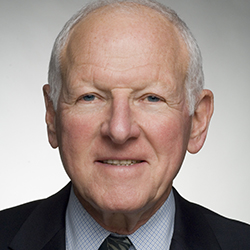David J. Rothman Ph.D.
 Director of the Center for Study of Society and Medicine
Director of the Center for Study of Society and Medicine
Bernard Schoenberg Professor of Social Medicine
Columbia University
Email: djr5@columbia.edu
Discipline: History
Expertise: Human Subjects Research, Organization of Care, Physician Practice Arrangements, Academic Medical Centers, Bioethics, History of Medicine, Transplantation
Investigator Award 
The Challenge of Living Organ Donors to Social and Health PolicyAward Year: 2003 A decade ago, most transplants were performed using organs from people immediately after death. Now, especially in the field of kidney transplantation, nearly half of the organs used for transplants in the U.S. come from living donors. Sheila M. Rothman, Ph.D. and David J. Rothman, Ph.D. address the meaning and policy implications of this new reliance on living organ donors for patients, families, physicians, and the general public. In their project, The Challenge of Living Organ Donors to Social and Health Policy, the Rothmans explore dilemmas inherent in the concept of organ donation as a "gift," controversies over compensating donors, conflicts of interest that arise when transplant teams treat both recipients and their donors, informed consent issues, and the potential for coerced decisions. They also examine the governance of medical technologies, particularly the limits to professional self-regulation and the role of federal and state regulators in ensuring that transplant policies serve the public interest.
Background 
David J. Rothman is Bernard Schoenberg Professor of Social Medicine and Director of the Center for Study of Society and Medicine at the Columbia College of Physicians and Surgeons. He is also president of the Institute on Medicine as a Profession, whose mission is to make professionalism a field and a force. (See www.imapny.org) Trained in american social history at Harvard University, David Rothman first explored the origins of mental hospitals, prisons, and almshouses. His 1971 book, The Discovery of the Asylum, was co-winner of the Albert J. Beveridge Prize of the American Historical Association. Conscience and Convenience (1980), and The Willowbrook Wars (1984, co-authored with Sheila M. Rothman) brought the story to the present. Since joining the Columbia medical school faculty, he has been examining the history of health care institutions and health policy and practices. His books include: Strangers at the Bedside: A History of How Law and Bioethics Transformed Medical Decision Making (1991) and Beginnings Count: The Technological Imperative in American Health Care (1997). His most recent publication, co-authored with Sheila Rothman, is The Pursuit of Perfection: The Promise and Perils of Medical Enhancement. David Rothman has a long interest in organ transplantation and together with Sheila Rothman has published several articles on the international traffic in organs. These essays and others appear in a New York Review book titled Trust Is Not Enough: Bringing Human Rights to Medicine (June, 2006).
